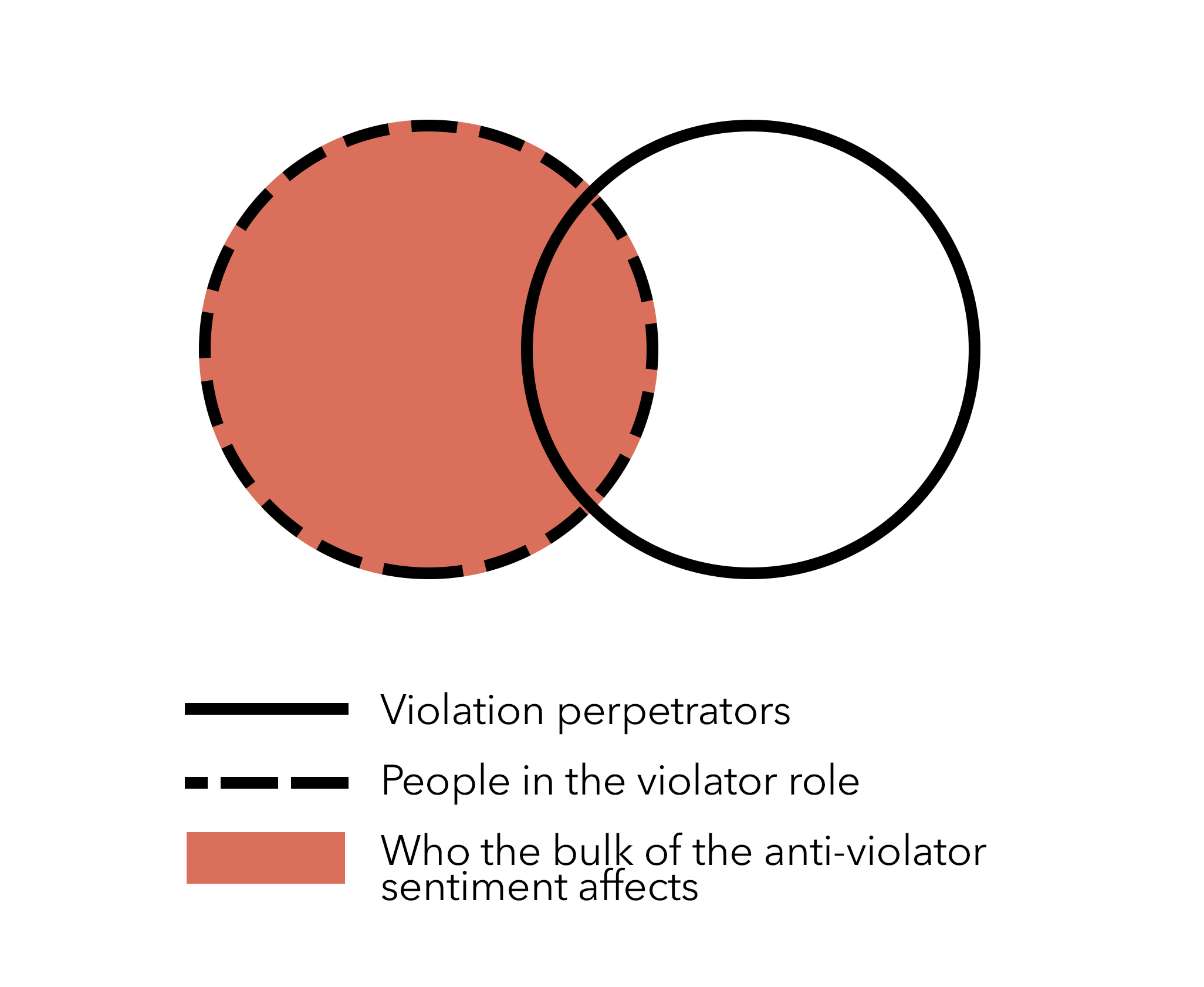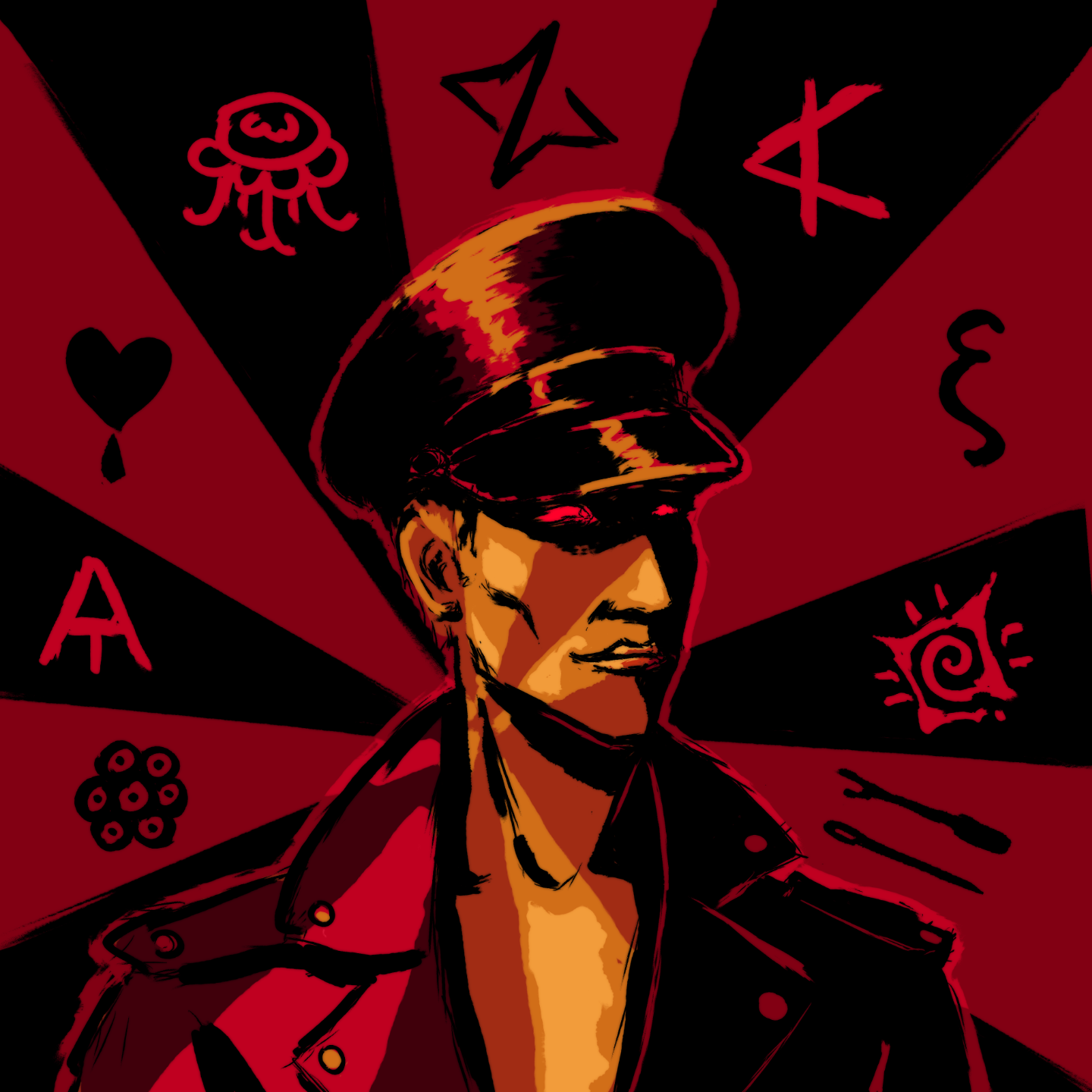In the society the concept of violating another person may be regarded as either normative or deviant, depending on the context.
Normative interpretation most often takes place in case of punitive/corrective actions towards a deviant or another marginalized figure. In these cases the violation perpetrator is typically someone, regarded by the society as fit to perform correction (parent, teacher, police officer, etc). In addition to that, acts of violation that are interpreted by the society as normative are also the most long-going ones, due to how easy it is to continue getting away with them. This is the reason why parents and family friends are more often CSA perpetrators than strangers.
In case of the deviant interpretation, the perpetrator is most often a deviant or adjacent. Deviant interpretation is where the violator role emerges – a social phenomenon, distinct from the practical existence of perpetrators of violation. The stigmatized and deviant view of violation is expressed through outrage towards people in the violator role (real or imaginary). I will try to emphasize this distinction by using words “violator role” and “violation perpetrator” rather than lumping them under the concept of “violator” as it is usually done in relevant discourse.
Some readers may be familiar with the concept of -jacketing in context of falsely presenting someone as having a certain negative quality: “predjacketing” (falsely accusing of being a predator), “fedjacketing” (falsely accusing of being a police infiltrator), “powerjacketing” (falsely accusing of having institutional power). The violator role is very close to this concept.
One of the classic types of the violator role is the grooming accusations against queer people and paraphiliacs. In discussions about technicalities of child sexual abuse, the word “groomer” still exists as a shorthand for a person who uses manipulation tactics to raise a child’s vulnerability. Outside of these discussions, however, “groomer” loses cohesion and becomes more of a self-sustaining concept – no longer you are a groomer because you do acts that are grooming, rather, the acts you do are grooming because you are a groomer. How exactly this or that aspect of queer or paraphiliac existence (flags, clothes, cartoon headcanons) is harmful towards children is justified post factum, after already establishing the premise that queers and paraphiliacs are harmful.
While many people genuinely and sincerely wish to end the acts of violation, the violator roles are constructed mostly with members of marginalized groups in mind. Most people lack the ability to recognize non-deviant perpetrators of violation and simultaneously experience a false alarm about deviant people who did not do anything. As a result of that, raising urgency around the acts of violation in such a way that’s more about the violator rather than the violation – talking about groomers rather than grooming – has a tendency to affect people in the violator role more than actual violation perpetrators.
Here I tried to show it in a chart:

This explains why abuse and assault commonly go unchecked and many victims aren’t taken seriously, yet the average person would gladly proclaim near-murderous hatred towards abusers/assaulters and successfully presented accusations (regardless of the truth) can ruin a person’s life.
I do not yet have a good working solution for this. Anything most people are doing seems to ignore half the problem – either activists focus solely on opposing the violation and deny that calling for action sometimes brings massive harm, or they focus on decreasing the shock and outrage and end up overlooking the violation. There is a need for a strategy that will include taking a stand against the acts of violation and violation perpetrators without placing the latter into some special class of a person. Any people affiliated with conservatism, radical feminism, fascism, anti porn ideology, or something similar, must be confronted when they try to promote their views in these conversations, even if some parts of what they say seem reasonable. But these are just general ideas.

Leave a Reply